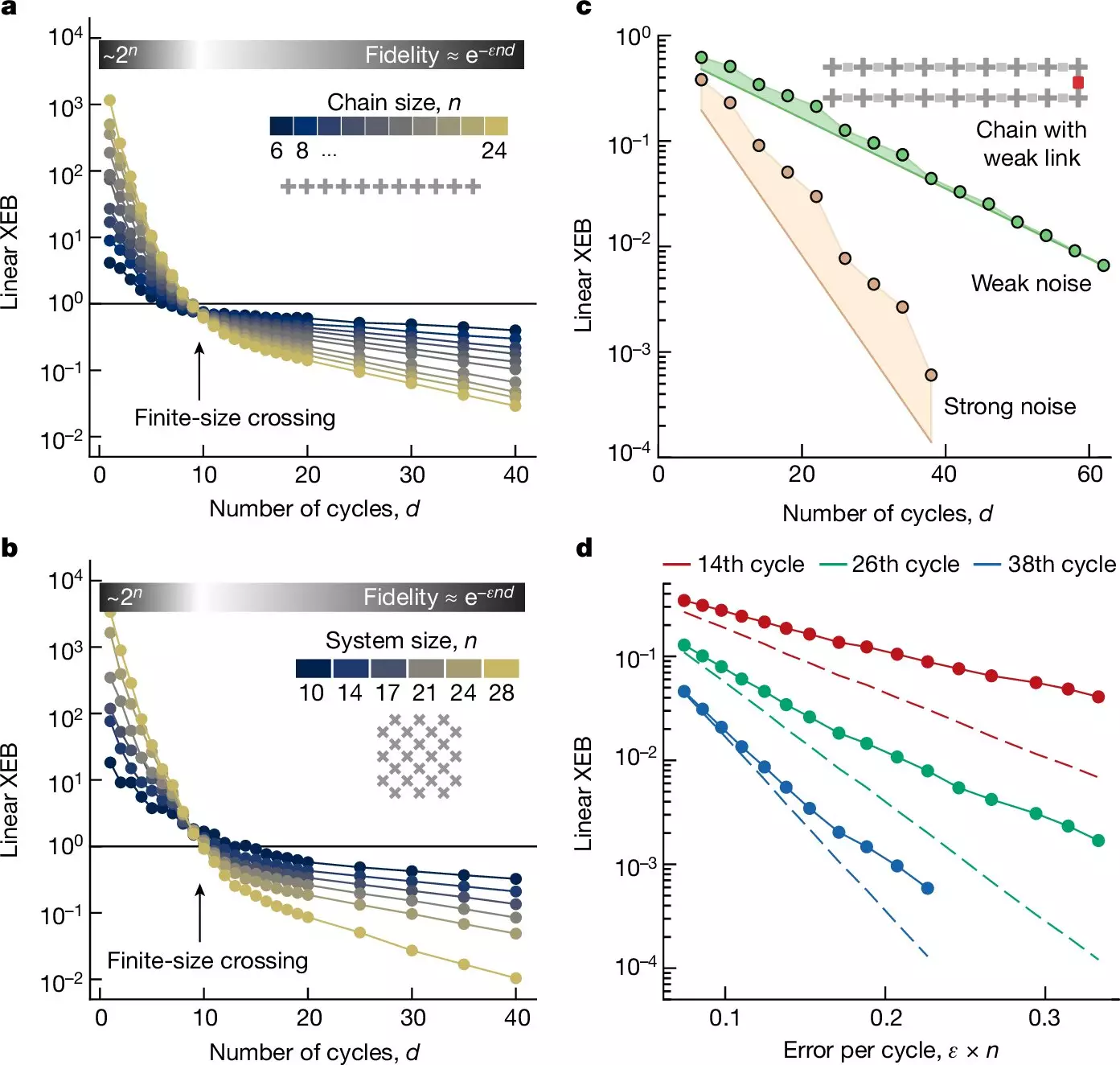At the forefront of quantum computing, a dedicated team of engineers, physicists, and quantum specialists at Google Research has recently made significant strides in overcoming one of the most persistent challenges in the field—environmental noise. In their latest publication in the prestigious journal Nature, the team documented their innovative approach that allowed their sycamore quantum chip to outperform classical computers in a task known as random circuit sampling (RCS). This accomplishment marks a pivotal moment in the ongoing quest to harness the potential of quantum computing for practical applications.
The pursuit of a functional quantum computer has spanned several decades, marked by ambitious promises to tackle complex algorithms in a fraction of the time required by classical supercomputers. While the quest for a universally applicable quantum computer remains elusive, researchers have documented continuous advancements as they introduce new technologies and methodologies. Google’s recent findings emphasize that the key to success lies not only in optimizing the quantum algorithms but also in minimizing the noise that hampers their performance.
The RCS Algorithm: Testing Quantum Potential
One particularly intriguing aspect of the ongoing research involves the RCS algorithm, which fundamentally centers around generating random numbers. This algorithm serves as a benchmark, enabling scientists to assess the abilities of quantum and classical systems against each other. By meticulously adjusting the operational conditions of their quantum chip, researchers were able to significantly curtail noise interference.
One of the most striking revelations from this study is the tangible impact of even minimal reductions in noise levels—specifically, moving from a 99.4% error-free rate to an impressive 99.7%. These increments may appear marginal at first glance, yet they resulted in transformative changes in the capabilities of the quantum processor. This finding underscores the sensitivity of quantum computations to environmental conditions, revealing a profound relationship between noise management and computational efficiency.
Steps Toward Quantum Advantage
The researchers employed an array of noise mitigation techniques, including placing the quantum chip in a chamber maintained at near absolute zero. This extraordinary measure is a testament to the lengths to which scientists are willing to go to minimize interference. Ultimately, such efforts allowed the sycamore chip to achieve what is described as a “quantum advantage” in RCS, a monumental milestone suggesting that scientists are edging closer to realizing the dream of deploying effective quantum computers for real-world tasks.
This breakthrough not only highlights Google’s technical ingenuity but also contributes to the broader conversation on the future of computing. If the barriers posed by environmental noise can be effectively circumvented, the dawn of a new era in computing capability might be upon us, with quantum technology offering solutions to complex problems previously deemed unmanageable.
The strides made by Google Research are not merely technical achievements; they represent a crucial step in redefining the landscape of computing. As researchers continue to confront and conquer the obstacles that stand in the way of practical quantum computing, the promise of harnessing the quantum realm for everyday applications inches ever closer to reality.


Leave a Reply